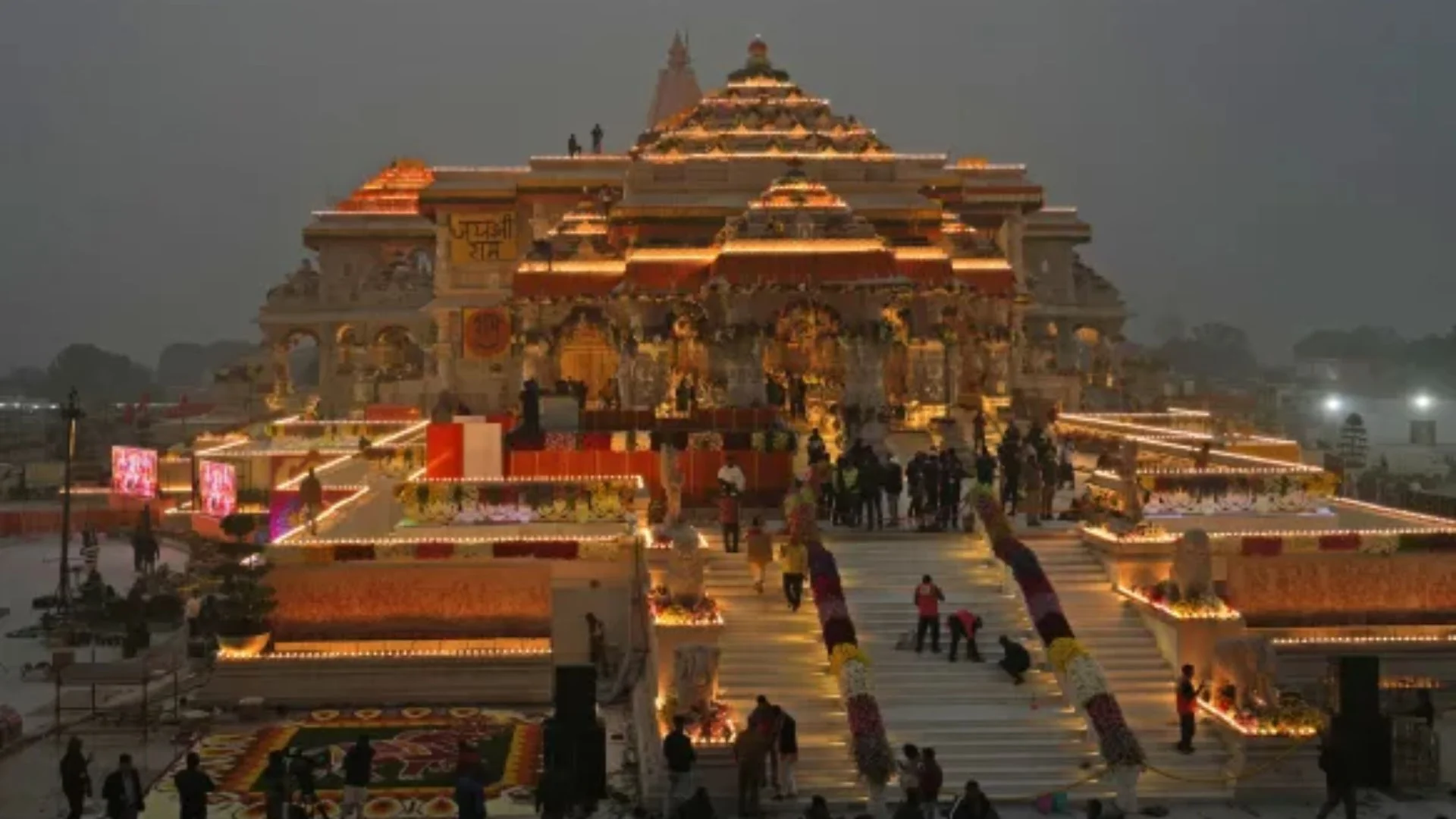Amid growing concerns among devotees about the purity of the famous Tirupati ‘laddu prasadam’, the Ram Mandir in Ayodhya has taken a decisive step by banning offerings prepared by external agencies. This decision follows allegations that adulterated ghee was used in making the laddus at the Sri Venkateswara Temple in Tirupati, prompting temple authorities to perform a purification ritual.
Ram Mandir’s Chief Priest Raises Concerns Over Ghee Purity
Acharya Satyendra Das, the chief priest of Ram Mandir, has voiced serious concerns about the quality of ghee sold across India. He emphasized that prasad offered to the deities should be prepared exclusively under the supervision of temple priests. He also called for a “complete ban” on prasad prepared by external vendors in all major temples and monasteries.
“Prasad should be prepared in the temple premises under the guidance of priests, and only such offerings should be presented to the deities,” Das stated. He pointed to the escalating controversy over alleged use of animal fat in the preparation of Tirupati Balaji’s prasad, which has led to widespread anger among both devotees and seers across the country. An investigation has been demanded by many to verify the claims.
Allegations of an International Conspiracy
Das further suggested that the situation might be part of an international conspiracy aimed at desecrating India’s religious institutions by mixing meat and fat into temple offerings. He urged the government to carry out stringent inspections of oils and ghee available in the market to ensure their purity.
Lucknow’s Mankameshwar Temple Takes Similar Action
In a related move, the Mankameshwar Temple in Lucknow has also banned market-bought offerings. The temple administration has requested devotees to bring only homemade prasad for offerings in the ‘Garbh Grih’ (sanctum sanctorum).
“We initiated this decision in light of the ongoing Tirupati Prasadam controversy. With growing concerns about adulteration in food products, we have banned all outside offerings and encourage devotees to prepare prasad at home,” said Mahant Divya Giri, head of the temple.
Food Safety Inspections in Mathura and Vrindavan
Following these concerns, Uttar Pradesh authorities launched an inspection campaign near religious sites in Mathura and Vrindavan. The Food Safety and Drug Administration (FSDA) department collected 43 samples of food items from 15 vendors around the holy sites. One sample of ‘peda’ was sent for testing at a Lucknow facility after initial findings suggested potential irregularities, though 42 other samples were found to meet standard quality checks.
Tirupati Laddu Controversy Deepens
The Tirupati Laddu, known as the ‘Srivari Laddu’, has been the primary prasad offering at the Tirupati temple for over 300 years. Recently, political tensions have arisen, with the newly-elected TDP government accusing the previous YSRCP administration of allowing adulteration in prasad preparation. Andhra Pradesh Chief Minister N. Chandrababu Naidu claimed that animal fat was being used instead of pure ghee.
In response, current Chief Minister Jagan Mohan Reddy refuted these allegations, asserting in a letter to Prime Minister Narendra Modi that no such violations occurred under his leadership. Reddy also called for a state-wide special puja on September 28 to restore the sanctity of the Tirumala Tirupati Temple and “atone the sin” surrounding the controversy.
Meanwhile, the Tirumala Tirupati Devasthanams (TTD) performed a purification ritual, known as ‘Shanti Homam’, in the temple kitchens where the laddus are prepared, hoping to calm concerns and restore faith among devotees.
As the debate over the purity of prasad continues, religious institutions like the Ram Mandir and others are taking proactive steps to ensure that offerings meet the highest standards. The controversy surrounding Tirupati laddus has ignited a larger conversation about the sanctity of temple offerings, pushing both authorities and religious leaders to enforce stricter oversight on the preparation of sacred food.



















